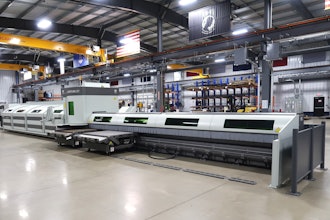By exploiting technology originally used in human genome studies, a public-private partnership programme is changing the way in which commercial barley breeding is being conducted. Findings from this four-year research project are highlighted in the latest issue of Business, the quarterly highlights magazine of the Biotechnology and Biological Sciences Research Council (BBSRC).
High quality barley production underpins the UK's £20 billion pound malting, brewing and distilling sectors, including the £4 billion whisky industry, the UK's biggest food and drink export.
To maintain and increase competitiveness in these sectors improved barley varieties that continually outperform their predecessors are vital which is why the Association Genetics of UK Elite Barley (AGOUEB) project was developed and funded by BBSRC, Defra and the Scottish Government through the Sustainable Arable LINK programme. The project brought together a consortium of breeders and geneticists, together with representatives from the barley supply chain, to develop and utilise powerful genotyping technologies in a new 'association mapping' approach to genetic analyses.
Professor Robbie Waugh, project leader from the Scottish Crop Research Institute (SCRI), explains: "AGOUEB is testimony to the value of having a longer-term vision and investment in crop science. By developing and using this new technology we have gained a much better understanding of what combinations of genes are required to make a good UK barley variety and we are working with the breeding community to improve economically important characteristics such as yield and resistance to pests and disease."
The partners in AGOUEB developed a genetic marker technology that allows thousands of genes located in specific segments across the barley genome, to be characterised in a single experiment at a tiny fraction of the cost of previous approaches. They then used this technology to determine the detailed genetic make-up of around 1000 barley cultivars and correlated the genetic make-up surrounding each genetic marker with a range of traits. By doing this AGOUEB has been able to identify segments of the barley genome that contribute positively to a broad range of characteristics. It has even allowed them to isolate a gene involved in plant pigmentation and another in determining floral structure.
"This aspect of the project is important because it provides both molecular diagnostics that can be efficiently used in plant breeding and a DNA sequence template for discovering natural gene variants that may perform better than those currently available," explains Professor Waugh.
The breeders involved in AGOUEB are now investigating innovative ways to use the data generated in the project to increase the speed and precision of improved barley cultivar development.
Commenting on the research, BBSRC Chief Executive Professor Douglas Kell, said: "This invaluable research highlights the huge benefits of scientists and industry joining forces and working across traditional boundaries. Developing new breeds of barley has important implications for the UK economy as well as paving the way for improving other crops which could have huge benefits for tackling issues such as global food security."






















